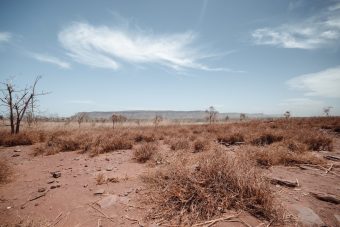The United Nations Climate Change Conference 2024 (COP29) opened on November 11 in the capital of Azerbaijan, Baku, and will last until November 22.
On the first day of the Conference, the COP29 Green Zone was opened to visitors. It was organized by this year’s presidency to engage the community in green transition, technological solutions, and global cooperation. On this occasion, an event titled “Towards Net-Zero Carbon Emissions: COP29 Partnerships for a Sustainable Future” was held, gathering key stakeholders in the field of sustainability. The panel discussion covered topics such as waste management, renewable energy sources, clean technologies, and reducing greenhouse gas emissions. In addition to this panel, other events were held focused on biodiversity, innovations in renewable energy, climate justice, the importance of education in the fight against climate change, and other topics, according to the official COP29 website.
On the first day, a consensus was reached on standards for creating carbon credits under Article 6.4 of the Paris Agreement, which was characterized as an early success. As highlighted, this will increase demand for carbon credits and ensure the integrity of the international carbon market under the supervision of the United Nations.
Mukhtar Babayev, the President of COP29, pointed out on the first day that, under current policies, the world is heading toward global warming of 3°C, which could lead to serious consequences. To secure funding for climate action, he emphasized that the conference’s priority is achieving the so-called New Collective Quantified Goal for climate financing (NCQG). This goal would set a concrete amount of funds that developed countries would allocate to help developing countries combat climate change.
More:
- The First Carbon Capture and Storage Project in Italy
- How Degraded Are Freshwater Systems – What the United Nations Report Reveals
- A 600-Year-Old Coral Records Changes in Pacific Ocean Temperatures
On this occasion, the President also called on countries to submit updated climate contributions aligned with the Paris Agreement’s goal of 1.5°C, as well as National Adaptation Plans by 2025.
By the third day, the NCQG contact group co-chairs released the first draft decision on the new goal for climate financial contributions. During COP29, there will be opportunities for exchanging opinions and providing additional inputs to reach a final agreement at the end of the Conference.
In collaboration with the International Energy Agency (IEA), the COP29 presidency identified five key opportunities to showcase positive progress towards energy goals defined at COP28. These include advancing energy storage and electrical grids, accelerating the implementation of energy efficiency policies, reducing methane and fossil fuel emissions, supporting clean energy in developing countries, and new Nationally Determined Contributions (NDC) based on the conclusions of the Global Stocktake (GST). In this context, the COP29 presidency called on countries, business leaders, civil society, institutions, and international organizations to support these opportunities.
On the second day of the Conference, it was announced that, after signing key documents, the Loss and Damage Fund is now ready to receive contributions. Project funding is expected to begin in 2025. During the ceremony, Sweden pledged 200 million kronor (around 19 million dollars) to the Fund, pending government approval. With this contribution, the total amount of pledged funds has increased to over 720 million dollars.

A group of leading multilateral development banks (MDB) shared projections for annual financial contributions to low- and middle-income countries at COP29 in Baku. It was stated that by 2030, MDB contributions will reach 120 billion US dollars (USD), including 42 billion USD for adaptation, with an additional 65 billion USD annually from the private sector. For high-income countries, contributions will be 50 billion USD, including seven billion USD for adaptation, with mobilization of 65 billion USD from the private sector.
It was also highlighted that MDBs have exceeded the climate financing goals set in 2019, with a 25 percent increase in direct financing and a doubling of mobilized funds last year.
The United States, China, and Azerbaijan organized a Summit aimed at accelerating actions to reduce methane and other non-CO2 greenhouse gas emissions. The focus was on key measures that can reduce short-term global warming to achieve the 1.5°C goal.
Another significant moment was the adoption of the Baku Declaration, which emphasizes the severity of climate change and its disproportionate impact on vulnerable groups, especially small island nations. It calls for urgent action and strong international support so that small island nations can strengthen their resilience to climate change and secure a sustainable future.

